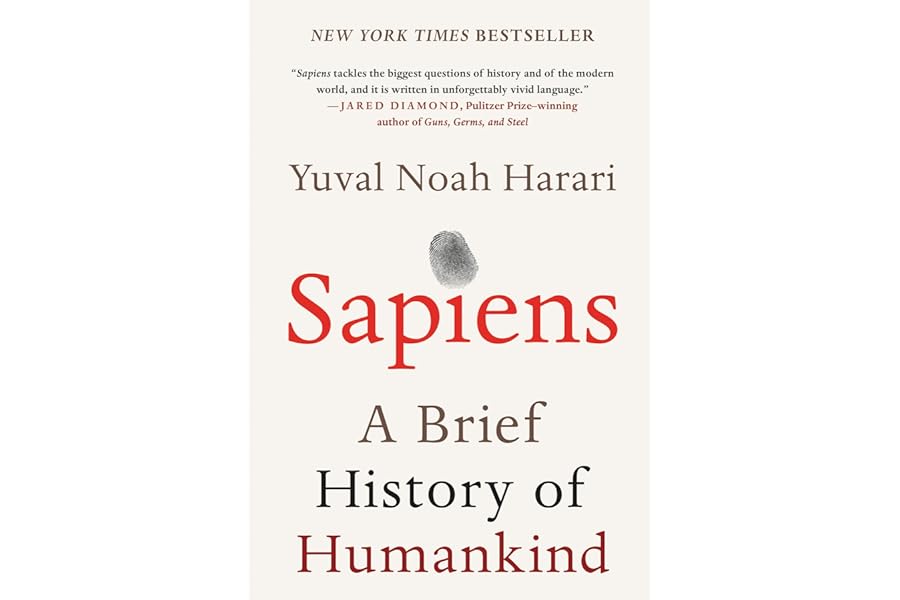One Sentence Summary
Sapiens: A Brief History of Humankind is a book by Yuval Noah Harari that tells the story of human evolution from hunter-gatherers to modern humans.
Book Genre
Sapiens: A Brief History of Humankind is a non-fiction book on the history of humanity, written for a general audience.
Main Topic of the Book
The main topic of the book is the evolution of human-kind from hunter-gatherers to modern humans, and the challenges posed by modernity.
Key Ideas
- The Sapiens – Harari’s definition of Homo Sapiens as the first species of hominid able to adapt rapidly to new conditions and to communicate effectively.
- Hunter-Gatherer – The way of life of the first humans and the struggles of adapting and surviving.
- Agriculture and Civilization – The transition from hunter-gatherer to farming societies.
- Modernity and Capitalism – Social, economic and political structures of modernity, and the effects of industrialization and capitalism on humankind.
Main Parts of the Book and a Short Summary
- Part 1 – The Cognitive Revolution – This part chronicles the evolution of Homo sapiens from hunter-gatherers to modern humans. Harari discusses the development of language, communication, and cooperation, as well as early social structures.
- Part 2 – The Agricultural Revolution – This part details the transition from hunter-gatherer societies to farming societies. Harari explores the effects of this transition on the environment, economy, social structures, and military capabilities. He also looks at the power imbalance between men and women in these societies.
- Part 3 – The Unification of Humankind – This part examines the process of the unification of humans into larger societies and polities, and the development of global networks of trade, culture, and religion. Harari looks at the effects of colonialism, imperialism, and globalization, as well as the spread of ideologies such as democracy and human rights.
- Part 4 – The Scientific Revolution – In this section, Harari examines how advances in science and technology have shaped the modern world, and discusses the potential risks and benefits of a world increasingly dominated by science and technology.
Key Takeaways
- Humans have gone through a long evolutionary process to become modern humans.
- The Agricultural Revolution drastically changed the way humans interacted with the environment and shaped the social and economic structure of many societies.
- Unification of humankind introduced powerful institutions and beliefs that enable humans to exist in large societies.
- Advances in technology offer many potential opportunities as well as risks to the future of humankind.
Author’s Background and Qualifications
Yuval Noah Harari is an Israeli historian and a professor at the Hebrew University of Jerusalem. He has written three international bestsellers: Sapiens: A Brief History of Humankind, Homo Deus: A Brief History of Tomorrow, and 21 Lessons for the 21st Century. He has spoken at TED and the World Economic Forum, and his work has been translated into over 60 languages.
Target Audience
Sapiens: A Brief History of Humankind is a book for a general audience and is accessible to readers with varying degrees of knowledge of history and science.
Publisher and First Publication Date
Sapiens: A Brief History of Humankind was first published in English in 2014 by HarperCollins.

